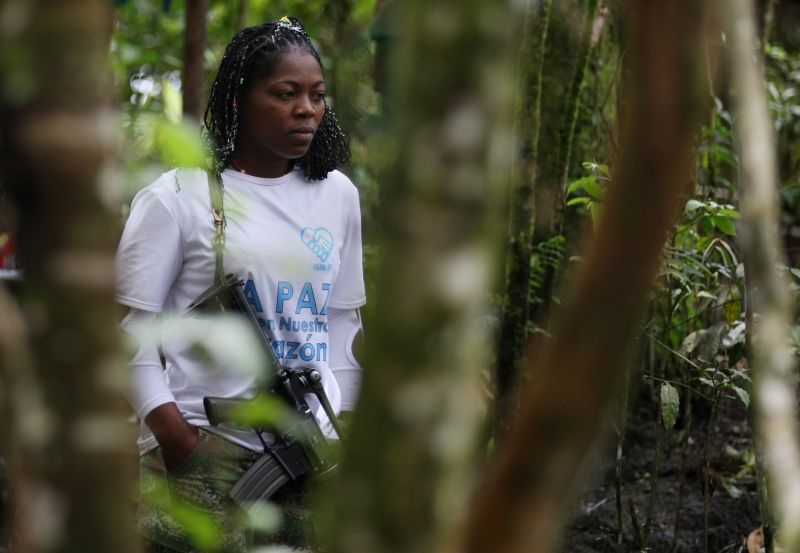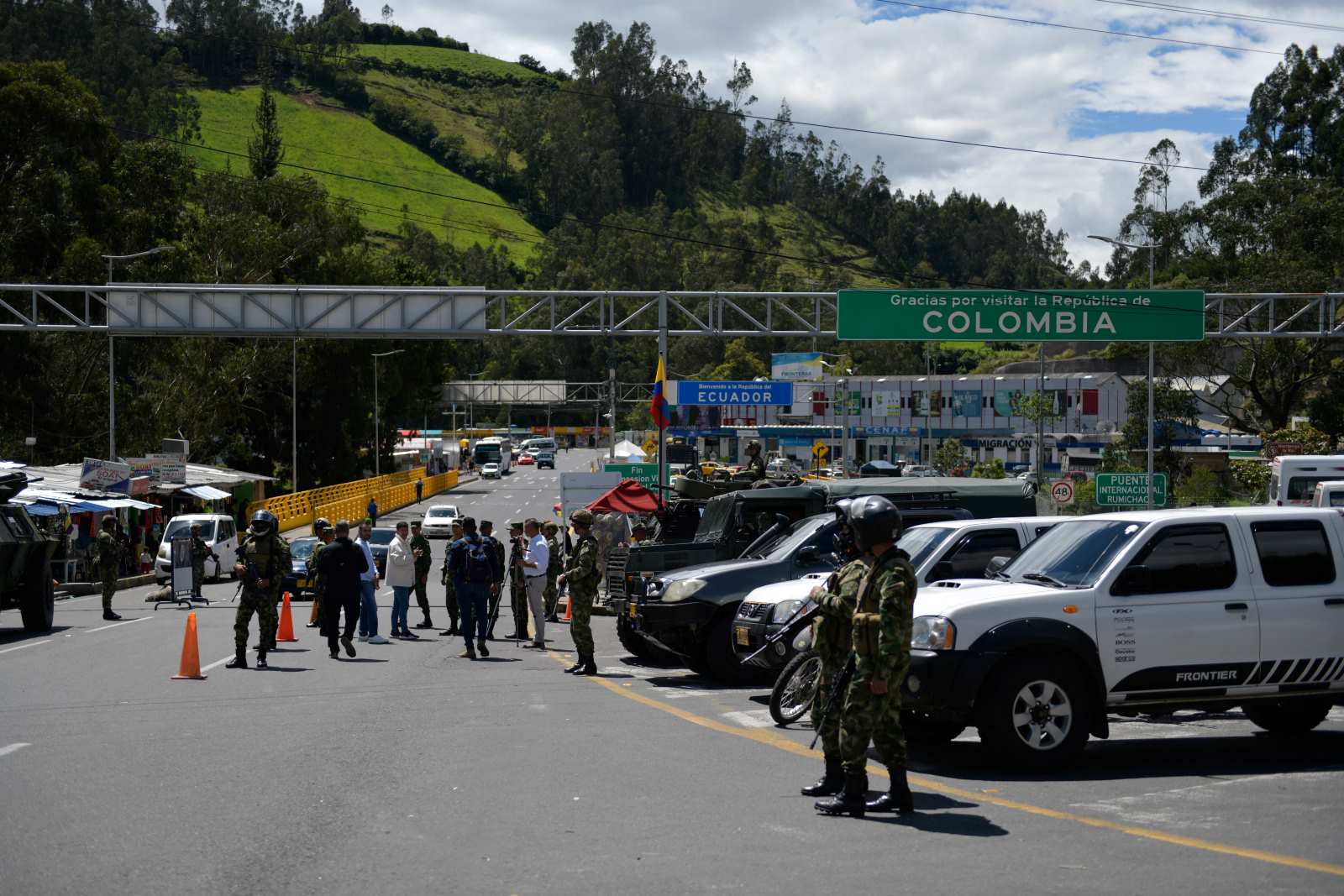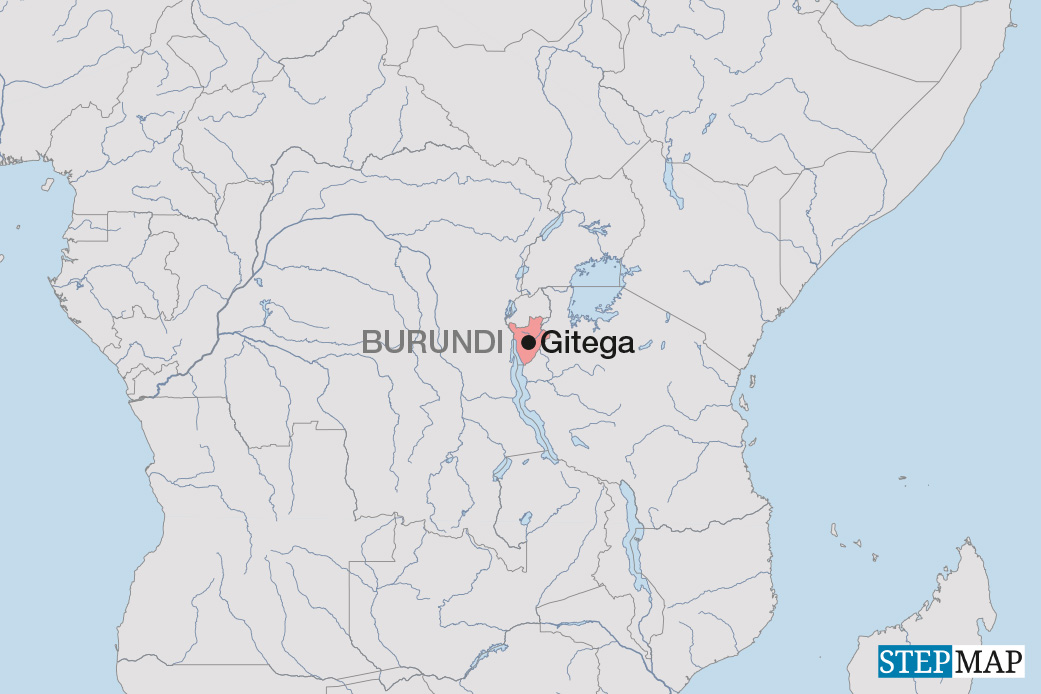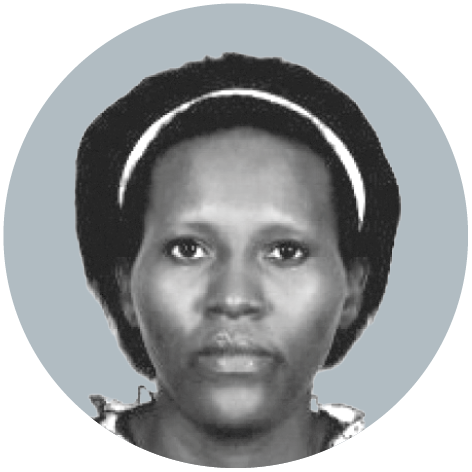Women’s rights
Addressing gender-based violence in Colombia
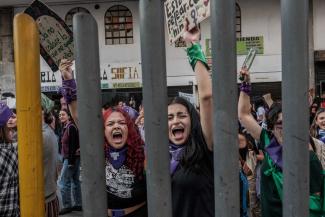
Gender-based violence unfortunately has a long tradition in Colombia. During the decades-long civil war, at least 35,178 people fell victim to sexual, gender-based and reproductive violence. The latter includes preventing women from making free choices regarding pregnancy and family planning. The number was published by the Colombian Special Jurisdiction for Peace (JEP – Jurisdicción Especial para la Paz), which is tasked with addressing war crimes and crimes against humanity, among others.
Women, girls and people with diverse sexual orientations were particularly affected. Between 1957 and 2016, the year of the peace agreement between the government and the left-wing guerrilla group FARC, nearly 90 % of the victims were female, according to the JEP; 35 % were children or adolescents at the time of the crimes. The perpetrators belonged to right-wing paramilitary groups, the FARC and security forces.
The JEP has officially recognised that sexual and gender-based violence was deliberately used as a weapon in the Colombian civil war. In September 2023, it initiated a new investigation into this matter.
Colombia still marked by violence
The 2016 peace agreement has not eradicated violence from Colombia at all. Instead, abuses by armed groups have increased in many remote areas, reaching comparable levels to just before the peace process, according to the civil-society organisation Human Rights Watch (HRW). Gender-based violence is widespread, while perpetrators are rarely held accountable, HRW reports.
While the signing of the peace accord brought hopes of a more peaceful future, the transition to post-conflict society has been marked by ongoing violence, particularly in rural areas. In fact, Colombia is one of the countries most affected by organised crime worldwide. The trade in drugs, weapons and people is flourishing. Cross-border violence by organised crime is a significant problem.
The Colombian society is characterised by an age-old machismo culture that oppresses women. Gender-based violence remains a daily scourge. The project Observatorio Feminicidios Colombia hosted by the civil-society organisation Red Feminista Antimilitarista counted a total of 525 femicides in 2023 in the country with a population of about 52 million. According to the civil-society organisation The Advocates for Human Rights, the National Institute of Legal Medicine and Forensic Sciences registered more than 47,700 cases of domestic violence in 2022, 19 % more than the previous year. What’s more, many cases of gender-based violence go unrecognised – out of fear of retaliation or stigmatisation, or because the victims do not trust the judicial system.
Proyecto Florecer
Given the extent of violence against women and girls in Colombia, it is essential that victims have the opportunity to seek competent help. One of the organisations they can turn to is Proyecto Florecer, which translates to “Project Blossom”. We are a social enterprise based in Medellín, the capital of the mountainous province of Antioquia. Our main tasks include educating the local population and promoting the integration of disadvantaged people. We work with an international community of volunteers.
Every participant in our programmes has suffered some kind of trauma: domestic violence, neglect or the loss of important caregivers. Proyecto Florecer is providing support to these survivors. We offer personal development workshops on various themes such as integration, racism, sexual health and communication. Young women in particular learn to shape their own lives and take responsibility for themselves and others.
Women share their experiences
In our “Women’s Circles”, women and girls meet regularly to share their experiences and support each other. Topics include healthy and unhealthy relationships, setting boundaries, self-confidence, trauma and resilience.
Moreover, Proyecto Florecer works towards changing the underlying societal norms that perpetuate gender-based violence. We want to help break the vicious cycle of poverty, unemployment and discrimination in Colombia. All women deserve to shape their lives with confidence.
Given the ongoing violence and oppression of women in Colombia, the path to gender equality is still long. Addressing gender-based violence requires a multifaceted approach that tackles its root causes while providing comprehensive support for women. For example, it is necessary to strengthen the judiciary to hold perpetrators accountable. High-quality education for women is essential too – and so is educating men about women’s rights and appropriate behaviour towards women.
Links
Proyecto Florecer:
https://proyectoflorecer.org
Human Rights Watch, Colombia, Events of 2023:
https://www.hrw.org/world-report/2024/country-chapters/colombia
Giovanni Puglisi is a journalist, founder and media advisor at Proyecto Florecer. He holds a Master’s degree from the London School of Economics.
giovanni.puglisi@alumni.lse.ac.uk

